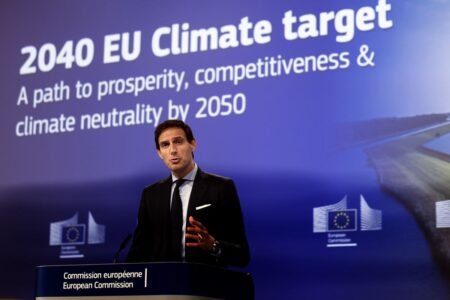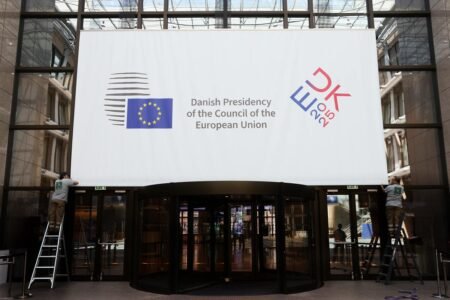(BRUSSELS) – The EU Commission fined five banks – Barclays, RBS, Citigroup, JPMorgan and MUFG – EUR 1.07 billion Thursday for taking part in two cartels in the Spot Foreign Exchange market for 11 currencies.
In two settlement decisions, the EU executive fined the banks for taking part in two cartels in the Spot Foreign Exchange market for Euro, British Pound, Japanese Yen, Swiss Franc, US, Canadian, New Zealand and Australian Dollars, and Danish, Swedish and Norwegian crowns.
The first decision (so-called “Forex – Three Way Banana Split” cartel) imposes a total fine of 811 197 000 on Barclays, The Royal Bank of Scotland (RBS), Citigroup and JPMorgan.
The second decision (so-called “Forex- Essex Express” cartel) imposes a total fine of 257 682 000 on Barclays, RBS and MUFG Bank (formerly Bank of Tokyo-Mitsubishi).
UBS is an addressee of both decisions, but was not fined as it revealed the existence of the cartels to the Commission.
“Companies and people depend on banks to exchange money to carry out transactions in foreign countries,” said the Competition Commissioner Margrethe Vestager: “Foreign exchange spot trading activities are one of the largest markets in the world, worth billions of euros every day. Today we have fined Barclays, The Royal Bank of Scotland, Citigroup, JPMorgan and MUFG Bank and these cartel decisions send a clear message that the Commission will not tolerate collusive behaviour in any sector of the financial markets. The behaviour of these banks undermined the integrity of the sector at the expense of the European economy and consumers.”
Foreign Exchange, or “Forex”, refers to the trading of currencies. When companies exchange large amounts of a certain currency against another, they usually do so through a Forex trader. The main customers of Forex traders include asset managers, pension funds, hedge funds, major companies and other banks.
Forex spot order transactions are meant to be executed on the same day at the prevailing exchange rate. The most liquid and traded currencies worldwide (five of which are used in the European Economic Area) are the Euro, British Pound, Japanese Yen, Swiss Franc, US, Canadian, New Zealand and Australian Dollars, and Danish, Swedish and Norwegian crowns.
The Commission says its investigation revealed that some individual traders in charge of Forex spot trading of these currencies on behalf of the relevant banks exchanged sensitive information and trading plans, and occasionally coordinated their trading strategies through various online professional chatrooms.
The commercially sensitive information exchanged in these chatrooms related to:
- outstanding customers’ orders (i.e. the amount that a client wanted to exchange and the specific currencies involved, as well as indications on which client was involved in a transaction),
- bid-ask spreads (i.e. prices) applicable to specific transactions,
- their open risk positions (the currency they needed to sell or buy in order to convert their portfolios into their bank’s currency), and
- other details of current or planned trading activities.
The information exchanges, following the tacit understanding reached by the participating traders, enabled them to make informed market decisions on whether to sell or buy the currencies they had in their portfolios and when.
Occasionally, these information exchanges also allowed the traders to identify opportunities for coordination, for example through a practice called “standing down” (whereby some traders would temporarily refrain from trading activity to avoid interfering with another trader within the chatroom).
Most of the traders participating in the chatrooms knew each other on a personal basis – for example, one chatroom was called Essex Express ‘n the Jimmy because all the traders but “James” lived in Essex and met on a train to London. Some of the traders created the chatrooms and then invited one another to join, based on their trading activities and personal affinities, creating closed circles of trust.
The traders, who were direct competitors, typically logged in to multilateral chatrooms on Bloomberg terminals for the whole working day, and had extensive conversations about a variety of subjects, including recurring updates on their trading activities.
More information on this case will be available under the case number AT.40135 in the public case register on the Commission’s competition website, once confidentiality issues have been dealt with. For more information on the Commission’s action against cartels, see its cartels website.








